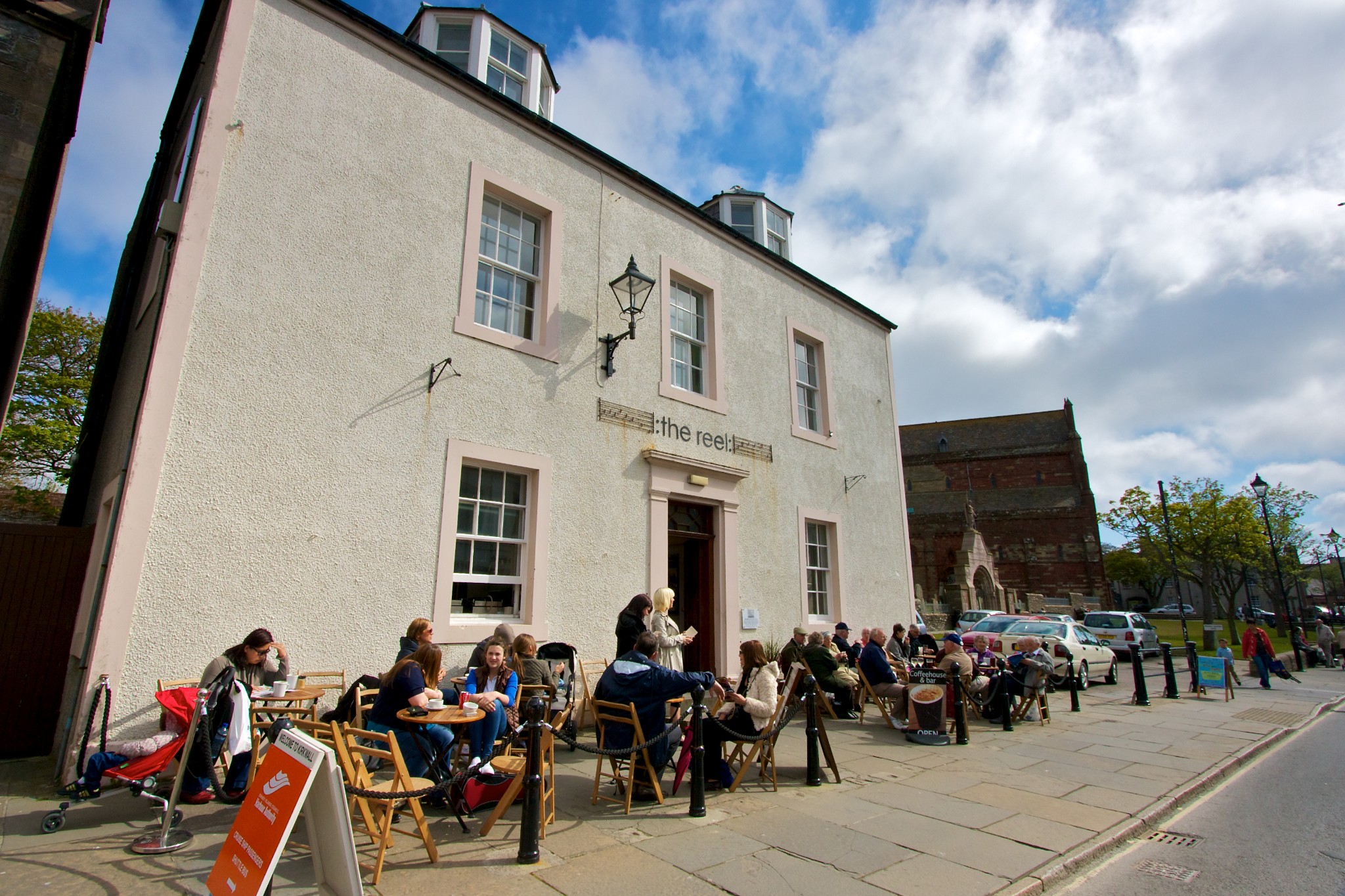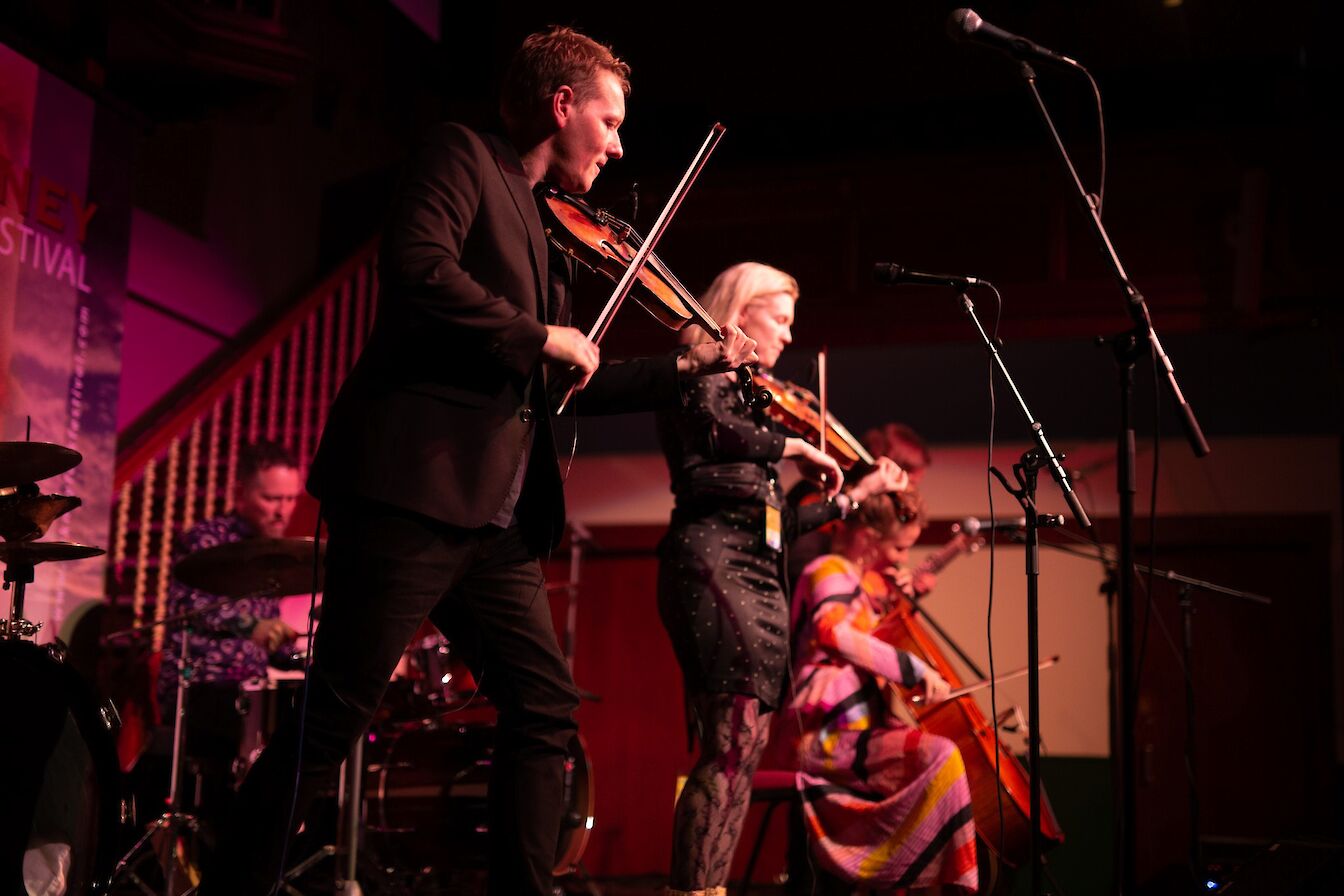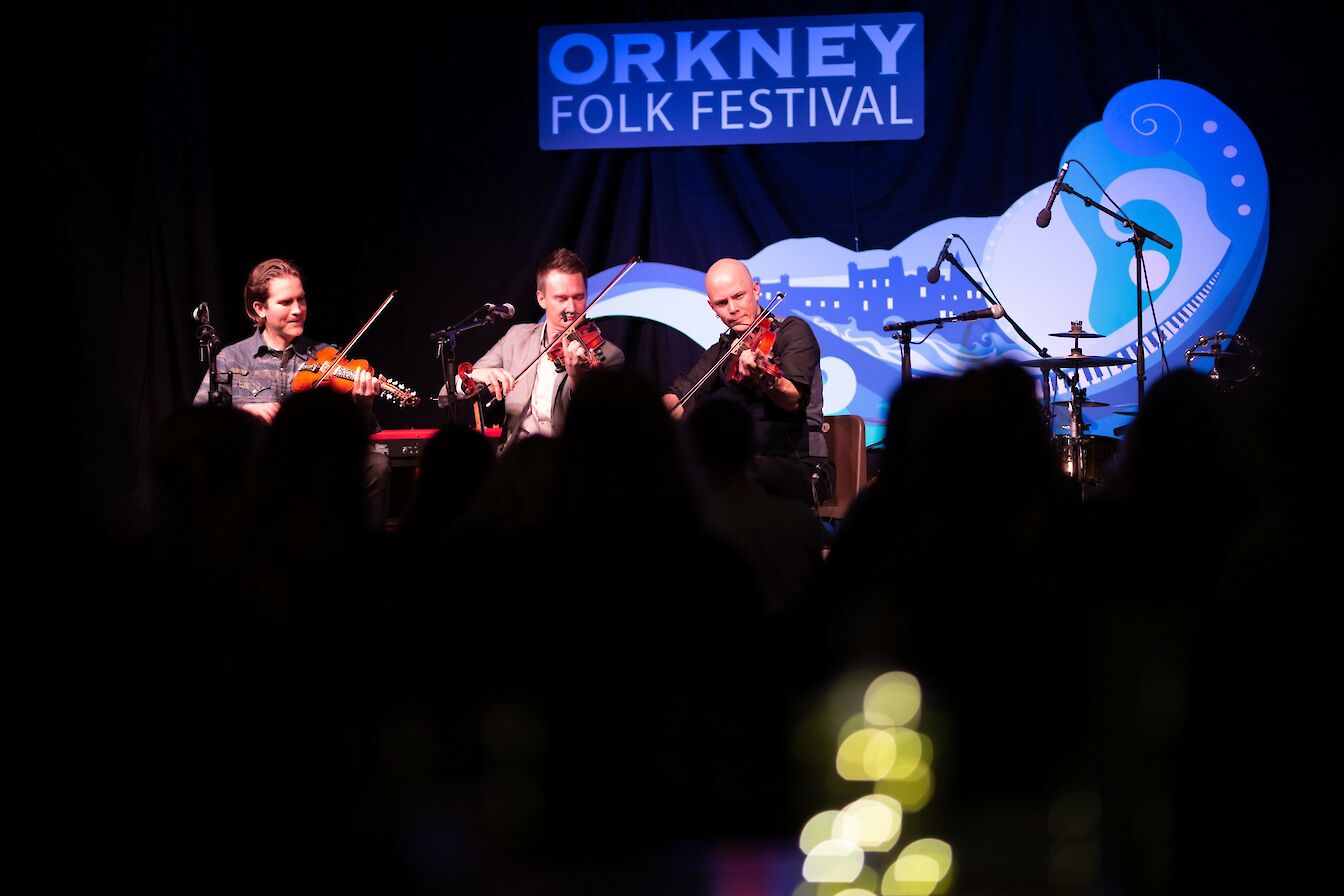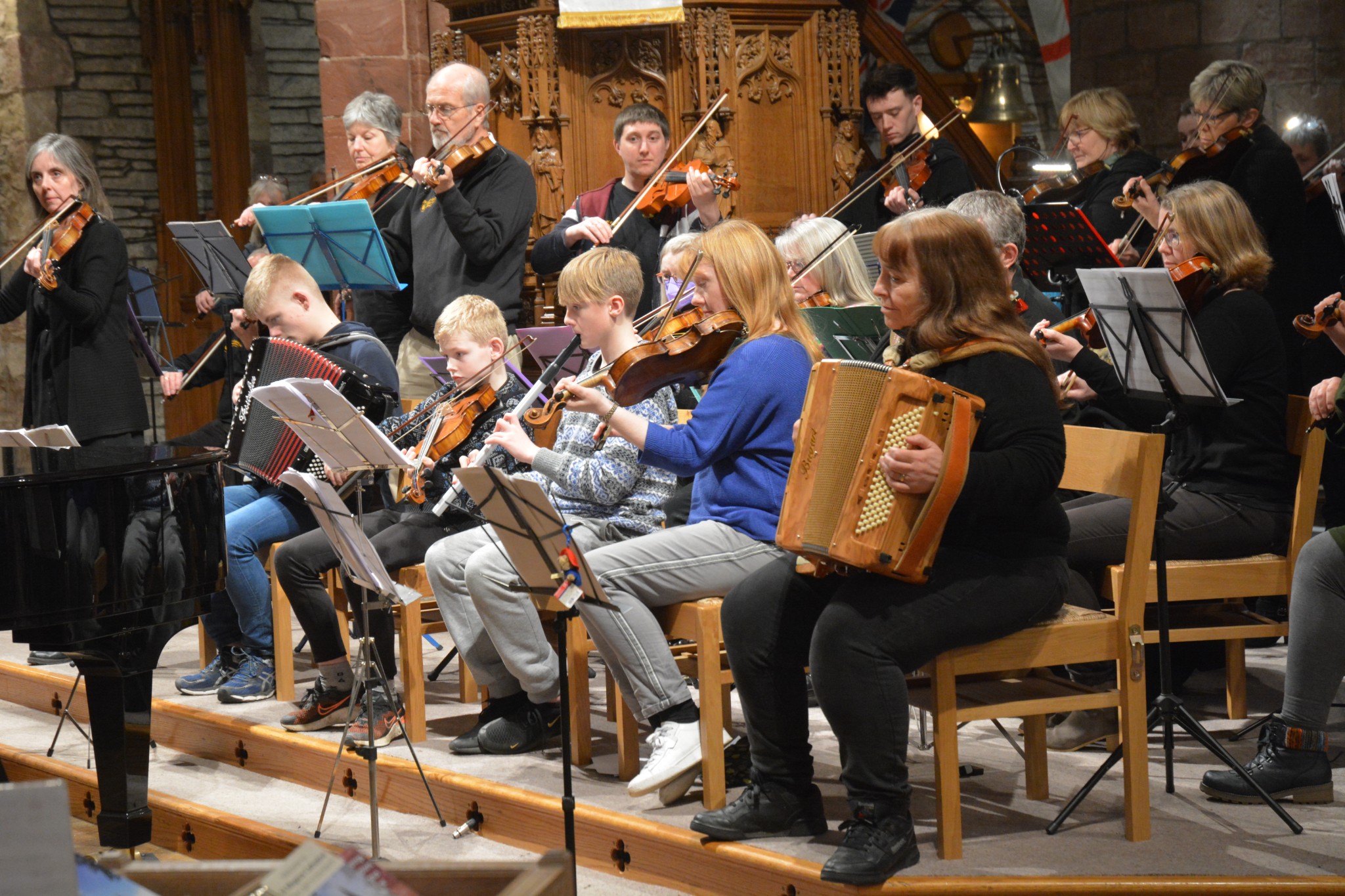We hadn’t been in Orkney more than a few weeks before I overheard Bev speaking to a neighbour: ‘I used to play the violin in a couple of orchestras, in my early twenties but haven’t touched one since’.
I’d been with Bev since her mid-twenties and knew nothing of this. Maybe she had thought classical Mozart wouldn’t impress a football-playing, fun-loving rock ‘n roll Yorkshire lad; or maybe she had truly thought it was all behind her and mostly forgotten.
‘You never said,’ I said, ‘How long did you play for?’
‘Oh, a few years, ever since school, and I passed a few grades too.’ Bev told me which grades but it didn’t mean anything to me. A couple of musical friends were pretty impressed though.
We had moved to Orkney at my suggestion and I was feeling a huge sense of responsibility for Bev’s happiness and fulfilment here. She had already picked up a part-time job in a café and started volunteering at the Clan cancer support charity shop but they were not, yet, enough.
I called into The Reel – the local music centre until it closed during covid – and explained the situation. They sold me a fiddle (that’s what violins are called in Orkney) and I took it home to Bev. Thirty years after last closing a violin case she opened a fiddle case, placed the instrument under her chin and applied the bow.
I confess I had been expecting the traditional sound of a cat being throttled; the squeaking brakes on an old pram; or worse. I was totally unprepared, however, for the silence that came out (if silence can ever “come out” of anywhere or anything). Bev didn’t seem able to get much of anything out of the instrument. ‘I need lessons,’ she said.
We soon found Erika, who had picked up a fiddle soon after setting aside her baby rattle. She is steeped in the Orcadian tunes and rhythms and an excellent teacher. Things took off. After a few sessions of scales, exercises; notes played on open strings and then more scales Bev progressed to two tunes called Flett fae Flotta and Gairsay. These, apparently, are traditionally played as a pair, called a set.
More tunes and sets quickly followed. There was The Dearness Two Step; The Dingieshowe Dancers; The Jig of Slurs; Mitton’s Breakdown and Itchy Fingers.
The lessons were held upstairs in The Reel and, as Bev was leaving each Thursday evening at 8pm the Strathspey and Reel Society* were setting up downstairs for their practice session. People would come into the bar for a drink and a free listen to the music. In the winter there may just be a handful but the bar would sometimes fill with visitors in the season. Bev and I started to stay behind and would often take our own visitors along.
Erika had said Bev should join in but she lacked the confidence. ‘The tunes are too hard and too fast,’ she said, ‘I wouldn’t be able to keep up.’ ‘You could pick and choose,’ Erika had said, ‘sit out the hard ones.’
The breakthrough came when Bev’s old headmaster visited. No one said ‘no’ to Ken and I knew this would be the moment. ‘Go on Bev, you can do it, we haven’t come all this way from Yorkshire to go home without hearing you play,’ he said. And so it was. Bev joined in and joined the Orkney Strathspey and Reel Society.
She would sit at the back and when her turn came to choose a tune for the group to play the leader (who didn’t yet know her name) would ask: ‘at the back?’ Bev learned to have a tune practised and ready. ‘The Dearness Two Step please,’ was a favourite (slow, you see).
Bev slurred through the jig. During Itchy fingers she massaged hers and, sometimes, broke down completely in Mitton’s. Double base smiled; the audience smiled. Erika whispered ‘Peedie** bows, leave your fingers down.’
Outside a terrible, 4-giga watt current swirled in the Pentland Firth and waves pounded Yesnaby cliffs but, in the heart of Orkney, Bev made progress at the back.
*The Strathspey and Reel Society survived the Reel closure and struck up again after covid. It played, for a time, in an upstairs room at the Orkney Distillery and, currently, at the St Magnus Centre. Bev doesn’t have to sit out so many tunes these days. She was recently elected treasurer.
**Peedie: An Orkney dialect wording meaning 'little'. The idea being that with short strokes of the bow you could play faster. Leaving the fingers of your left hand down on the strings from one note to the next is another aid to speed – something to be aspired to apparently.
 Richard writes regularly for Scottish Islands Explorer. His first book: 'Scotland’s Islands – A Special Kind of Freedom' was published in 2014. 'Orkney – A Special Place' appeared in 2017, with 'Orkney - A Special Way of Life' published in 2021. The books are published by Luath Press, Edinburgh. 'The Sea All Around - Travels in Scottish Islands' is a work in progress.
Richard writes regularly for Scottish Islands Explorer. His first book: 'Scotland’s Islands – A Special Kind of Freedom' was published in 2014. 'Orkney – A Special Place' appeared in 2017, with 'Orkney - A Special Way of Life' published in 2021. The books are published by Luath Press, Edinburgh. 'The Sea All Around - Travels in Scottish Islands' is a work in progress.



